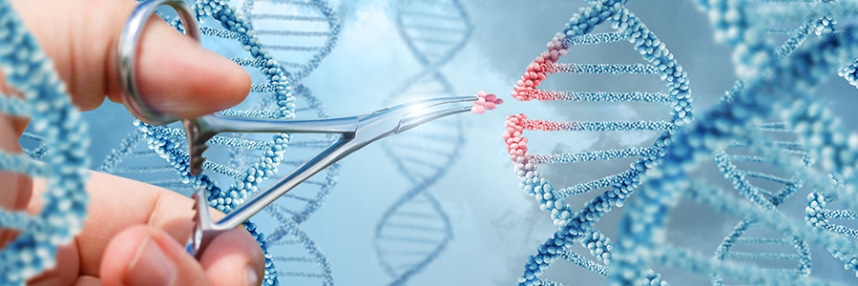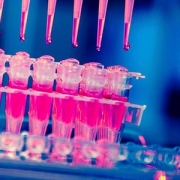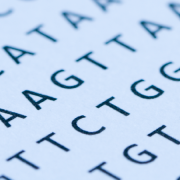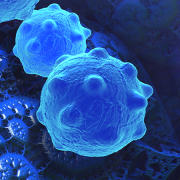Hereditary angioedema gene therapy hope
A CRISPR-based genome therapy has shown promising results for patients with a rare genetic swelling disorder
Researchers conducting a CRISPR-based therapy study on hereditary angioedema, an inherited rare disorder, have published positive results from phase one of the trial. The study, which involved 10 patients, reported significant reductions in symptoms and no severe side effects.
Hereditary angioedema
Affecting around 1 in 50,000 people, the condition causes fluid to accumulate outside of the blood vessels, which results in attacks of swelling. The recurrent episodes are unpredictable and can cause inflammation under the skin as well as affect the lining of the gut and lungs. Swelling in the lungs and airway can be particularly dangerous; affected people can have trouble breathing, or even suffocate, without medical intervention.
“Hereditary angioedema can cause patients severe swellings and intense pain which can be life-threatening as well as restricting normal activities, such as going to work or school. Because it is often misdiagnosed, many patients undergo unnecessary treatments and invasive procedures,” said Cambridge University Hospitals’ consultant in clinical immunology and allergy Dr Padmalal Gurugama, who was involved in the clinical trial.
The condition is usually caused by a variant in the SERPING1 gene that is responsible for encoding the C1 inhibitor protein, which blocks other proteins in the body that promote inflammation. The condition is inherited in an autosomal dominant fashion, meaning that a child of an affected person has a 50% chance of also being affected.
CRISPR-based treatment
The treatment involves in-body genome editing, where the CRISPR guide RNAs and Cas9 enzymes are encased into lipid nanoparticles and infused directly into the patient’s bloodstream, to be taken up by liver cells where the genome editing takes place.
Unlike classical gene therapies, this treatment does not provide a working copy of the SERPING1 gene. Instead, it uses CRISPR/Cas9 to target, cut and inactivate a completely different gene in a pathway that ultimately releases an inflammatory peptide. This inflammatory peptide is normally regulated by the C1 inhibitor, but in people with hereditary angioedema it builds up in the plasma, leading to angioedema attacks. By reducing the amount of the inflammatory peptide, the therapy effectively prevents angioedema attacks.
The clinical trial was a collaboration of research teams at Cambridge University Hospitals, University of Auckland and Amsterdam University Medical Center, and funded by US company Intellia Therapeutics.
- Listen to the LinkAGE webinar: CRISPR therapeutics
Treatment impact and the future of the trial
So far, 10 patients have been treated with a range of dose levels, and none have had serious side effects. Additionally, the patients report a mean average of 95% reduction in angioedema attacks.
One participant spoke about how the condition impacted his quality of life, and the difference the treatment has made. “The randomness, unpredictability and potential severity of the attacks made trying to live my life almost impossible. I was constantly worrying if my next attack would be severe,” he said. “I can now plan ahead. I can go out for walks, do the shopping or exercise and not be concerned I will have an attack… The freedom has opened up my world and improved my self-confidence.”
Larger phase-two and phase-three clinical trials are planned, and the participants from phase one of the trial will be followed for a total of 15 years to see if the treatment continues to be safe and effective.
—
Please note: This article is for informational or educational purposes, and does not substitute professional medical advice.









